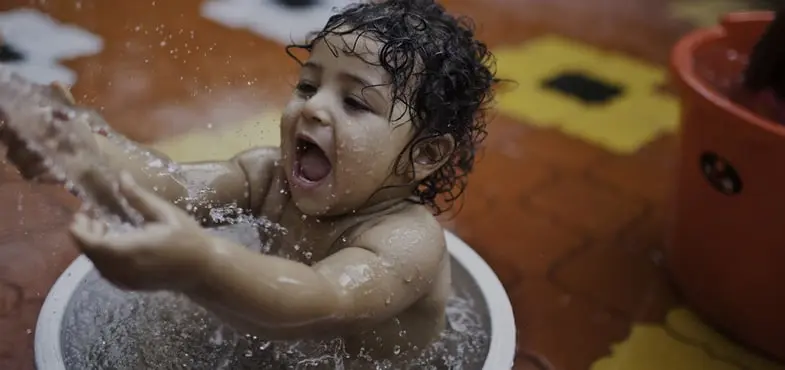Keeping your newborn’s baby skin clean is essential to good health, and sponge bath time is also a wonderful time to engage your baby’s senses, helping her development, right from the start.
How Often Should You Bathe Your Baby?
Most pediatricians or midwives recommend bathing newborns 2 or 3 times per week, increasing the frequency as your baby gets older. Start with sponge baths until your baby’s umbilical cord stump dries and falls off, and the remaining wound heals.During a sponge bath, your gentle touch while you support and wash your baby can lead to her improved physiological, cognitive, emotional and social development, while the smell of JOHNSON’S® delicate washes (like JOHNSON’S® Cottontouch™ 2-in-1 Hair & Body wash) can improve your baby's mood, calmness and alertness.
Supplies and baby bath products you need before bathing your baby:
Make sure you have everything you need ready before giving your baby a sponge bath.
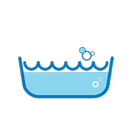
Baby bath or tub, filled with water at a comfortable temperature.
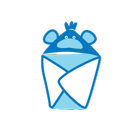
A large, soft, hooded towel
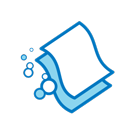
A soft washcloth

Cotton Squares or rounds
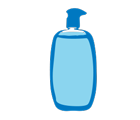
A mild cleanser specially formulated for babies, such as JOHNSON’S® Cottontouch™ 2-in-1 Hair & Body wash
Supplies and baby bath products you need after bathing your baby:
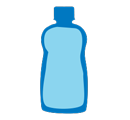
Moisturizing lotion, such as JOHNSON’S® Cottontouch™ Face & Body Lotion or baby oil such as JOHNSON’S® Cottontouch™ Oil
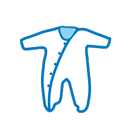
Clean clothing
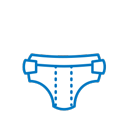
Diaper

Receiving blanket
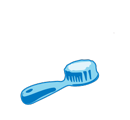
Soft brush or comb
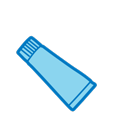
Protective ointment for the diaper area, such as JOHNSON'S® Baby Nappy Cream
How to Give Your Baby a Sponge Bath?
Provide reassurance to your baby
Take a few minutes to talk to your baby about her day as you prepare for the transition to bathtime. Undress her, except for her diaper, and wrap her in a towel.
Wash eye area of your baby
Holding your baby's head, gently cleanse around each eye with a cotton ball dampened with warm water. Cotton balls are good to use because they don't shed pieces of lint.
Use a new cotton ball for each eye and always wipe from the inside corner of the eye, outward. If there is no crust (dried mucus), there is no need to wash the eye area. Do not wash the eye itself.
Wash your baby's face
Using a soft washcloth, wipe around your baby's mouth, nose and whole face, working from the middle outward, using only plain water. Pay special attention to behind the ears, under the chin and creases in the neck. Remember: Never put anything into the ear canal or nose. Gently pat dry.
Wash your baby's hair
Keeping your baby wrapped in a towel, put your arm under her back and your hand behind her head. With your free hand wet your baby's hair with the washcloth. Apply a small amount of gentle baby wash, such as JOHNSON’S® Cottontouch™ 2-in-1 Hair & Body wash, which is specially formulated to not sting her eyes, and gently massage over her whole head.
Rinse your baby's hair with water until all the cleanser is removed. Lay your baby down and dry her head gently, and lift the hood of the towel over her head to keep her warm.
Wash your baby's body
Next, wash your baby's body using a gentle, trusted, soap-free baby cleanser. JOHNSON’S® Cottontouch™ 2-in-1 Hair & Body wash is mild enough for your newborn's hair and skin: In fact, it's used by more hospitals for bathing newborns than any other baby wash.
Keeping her head covered with the corner of the towel, unwrap your baby and remove her diaper. Wet and lather your hand or washcloth and begin to wash the rest of your baby's body. Wash the neck to her waist, including her arms and hands, and thoroughly rinse and pat dry. Cover her upper body with a towel to keep her warm and move down to her legs, feet and toes.
Remember to rinse and dry well in all the creases, because excessive moisture can lead to skin irritation. Wash the diaper area last using clean warm water: for a baby girl, just wipe the area gently from front to back. For a baby boy, also wipe from front to back. For uncircumcised boys, gently wash the penis and genital area, avoiding pulling back the foreskin.
Umbilical cord care during baby bath
Before cleaning your baby's umbilical cord, you can put her shirt and diaper on to keep her warm. Remember to avoid covering the cord with the diaper, because the cord area should be kept dry and clean at all times.
Clean around and in the base of the cord with a cotton ball. Do not be afraid to clean the cord; the quicker the base dries, the sooner the cord will fall off.
Moisturizing your baby after bath
Moisturizing is an essential part of a baby skin care regime. Use gentle baby care products such as JOHNSON’S® Cottontouch™ Face & Body Lotion or JOHNSON’S® Cottontouch™ Oil to protect your baby’s skin and keep it healthy.
Dressing your baby after bath
Make sure your baby is fully dry before dressing. Then dress your baby and wrap her in a receiving blanket to keep her warm. Hold your baby close and enjoy your time together.
Baby Science!
Your baby's head has a soft spot (called fontanels) where the skull has not yet fully closed. Having this soft spot allows her skull to mold during her passage through the birth canal. It is safe to gently touch and wash this area.

Safe & Snuggly
Wrapping your newborn in a warm blanket after her bath can help her feel safe and secure. BabyCenter® shares simple steps for swaddling your baby.
Moms around the world trust JOHNSON’S® to care for their babies
We are committed to working with moms, healthcare experts, and scientists to ensure our products continue achieving the highest standards in safety, quality, and care.
